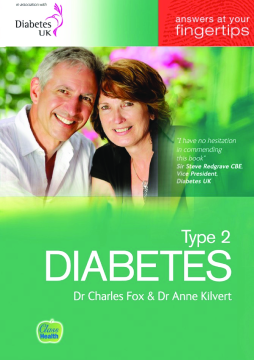
Additional Information
Book Details
Abstract
There are two main types of diabetes and you may not be sure which you have. In general, people with Type 1 diabetes are usually young, develop symptoms quite rapidly and need insulin treatment immediately. In contrast, Type 2 diabetes tends to occur in people who are over thirty and above average weight. The onset tends to be gradual and the initial treatment is through diet and tablets. If your diabetes has been treated this way, this book is for you.
The authors comprehensively answer over 400 questions about every aspect of living with the condition, and their constructive approach will give you all the knowledge you need to deal confidently with your diabetes.
- Up-to-date information on all the available - and forthcoming - medical treatments, including the current situation with Avandia (rosaglitizone)
- Advice on how to achieve the best possible control of your diabetes, working around your daily routine
- Answers to dozens of practical questions about lifestyle, work and holidays
- Guidance on healthy eating, exercise and complementary therapies
Table of Contents
| Section Title | Page | Action | Price |
|---|---|---|---|
| Type 2 Diabetes: Answers at your fingertips | Cover | ||
| Dedication | iv | ||
| Half Title Page | v | ||
| Title Page | vii | ||
| Copyright | viii | ||
| Contents | ix | ||
| Foreword | xiii | ||
| Foreword to the 6th edition | xiv | ||
| Preface | xv | ||
| Acknowledgements | xvi | ||
| Introduction | xvii | ||
| 1. What is diabetes? | 1 | ||
| What happens in diabetes? | 2 | ||
| Types of diabetes | 5 | ||
| Causes of diabetes | 7 | ||
| Symptoms | 21 | ||
| 2. Treatment without insulin | 24 | ||
| Diabetes education | 25 | ||
| Diet | 27 | ||
| Exercise | 47 | ||
| Tablets | 50 | ||
| Injections other than insulin | 60 | ||
| Non-medical treatments | 62 | ||
| 3. Treatment with insulin | 65 | ||
| Types of insulin | 66 | ||
| Timing | 76 | ||
| Dosage | 80 | ||
| Injecting | 82 | ||
| Diet and insulin | 90 | ||
| Hypos | 99 | ||
| 4. Monitoring and control | 105 | ||
| Why monitor? | 107 | ||
| Monitoring in Type 2 diabetes | 110 | ||
| Blood glucose testing | 111 | ||
| Urine | 124 | ||
| Haemoglobin A1c | 127 | ||
| Diabetes clinics | 131 | ||
| 5. Life with diabetes | 144 | ||
| Sports | 145 | ||
| Eating out | 148 | ||
| Fasting and diabetes | 148 | ||
| Holidays and travel | 149 | ||
| Work | 158 | ||
| Other illnesses | 162 | ||
| Hospital operations | 166 | ||
| Driving | 168 | ||
| Alcohol | 173 | ||
| Drugs | 175 | ||
| Smoking | 177 | ||
| Prescription charges and Social Security benefits | 179 | ||
| Miscellaneous | 181 | ||
| 6. Sex, contraception and HRT | 185 | ||
| Impotence (Erectile dysfunction) | 186 | ||
| Contraception and vasectomy | 192 | ||
| Thrush | 195 | ||
| Hormone Replacement Therapy (HRT) | 196 | ||
| Termination of pregnancy | 198 | ||
| Fertility | 198 | ||
| 7. Pregnancy | 200 | ||
| Prepregnancy | 202 | ||
| Pregnancy management | 206 | ||
| Complications | 209 | ||
| 8. Long-term complications | 215 | ||
| General questions | 217 | ||
| Eyes | 221 | ||
| Feet, podiatry and footwear | 229 | ||
| Kidney damage | 240 | ||
| Nerve damage | 243 | ||
| Heart and blood vessel disease | 247 | ||
| Blood pressure | 251 | ||
| The mind | 252 | ||
| 9. Research and the future | 254 | ||
| Searching for causes and cures | 255 | ||
| Transplantation | 256 | ||
| New treatments | 258 | ||
| Possible developments in insulin delivery | 259 | ||
| Insulin pumps and artificial pancreas | 261 | ||
| 10. Self-help groups | 264 | ||
| Diabetes UK | 264 | ||
| Juvenile Diabetes Research Foundation (JDRF) | 267 | ||
| Insulin-Pumpers | 267 | ||
| Insulin Dependent Diabetes Trust (IDDT) | 267 | ||
| National Kidney Federation (NKF) | 268 | ||
| 11. Emergencies | 269 | ||
| Glossary | 275 | ||
| Appendix 1: Publications | 286 | ||
| Appendix 2: Useful addresses | 288 | ||
| Index | 295 |
